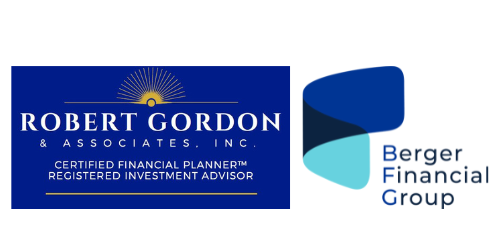SECURE ACT: How It May Change Your Retirement Plan
Submitted by Robert Gordon & Associates, Inc on February 3rd, 2020
Congress has passed significant changes to retirement savings law that will affect individuals in or nearing retirement, new parents, small business owners and employees, and could have a major impact on estate planning.
The changes include increasing to 72 from 70½ the age at which individuals must begin taking required minimum distributions (RMDs) from their retirement accounts; lowering barriers for small business owners to create a savings opportunity for their employees; and changing the rules for inherited retirement accounts that could spur revisions to estate plans.
The retirement savings bill, known as the SECURE Act, was included as part of the massive government spending bill that was approved by Congress in a flurry of last-minute deal-making in mid-December. The 1,773-page bill was one of two bills to fund government operations that averted a government shutdown that would have taken place on December 20, when a temporary agreement to fund the government was set to expire.
The bill was approved by the House of Representatives on December 17, and the Senate followed suit on December 19. President Donald Trump signed it into law on December 20.
The SECURE Act, an acronym for the “Setting Every Community Up for Retirement Enhancement,” was approved overwhelmingly by the House in May, but was stuck in limbo for months in the Senate until supporters pushed for the bill to be included in the must-pass year-end package.
Key provisions in the retirement savings portion of the bill include:
- Change to RMD age: The law raises to 72 from 70½ the age at which individuals must begin taking RMDs from their retirement accounts. Important: The new law only applies to people who turn 70½ after December 31, 2019. If a person turned 70½ in 2019, the law does not apply—that person must take an RMD in 2019, 2020 and beyond.
- Contributions to traditional IRAs after age 70½. The law ends the prohibition on contributing to an individual retirement account (IRA) after 70½. Individuals may continue contributing to an IRA at any age, as long as they have earned income.
- New rules for inherited retirement accounts: Under current law, inherited retirement accounts (often referred to as “Stretch IRAs”) can distribute those assets over the beneficiary’s lifetime. Under the new law, those assets must be distributed within 10 years. This provision has potentially significant estate planning implications. There are exceptions for spouses, minor children, disabled individuals and people less than 10 years younger than the decedent. The bill does not affect existing inherited accounts. It only applies to accounts that are inherited in 2020 and beyond.
- Penalty-free withdrawals for birth/adoption expenses. New parents can withdraw up to $5,000 from an IRA or an employer-sponsored retirement plan to pay for birth and/or adoption expenses, through the first year after the birth or adoption. Taxes still need to be paid on pre-tax contributions, but no penalties apply to the withdrawal.
- Part-time workers can participate in a 401(k) plan. Employees must have worked at least 500 hours a year for three consecutive years in order to be eligible.
- Lifetime income disclosure. The bill requires the Department of Labor to propose rules for a new disclosure to plan participants that will illustrate the participant’s projected monthly income in retirement based on current retirement assets. It’s designed as a kind a “progress report” to show employees how they are doing on saving. The rule-making process for this is likely to take a year or more, followed by an implementation period, so it could be 2021 or 2022 before this becomes standard.
- Makes it easier for annuities to be offered in 401(k) plans. The new law lowers barriers to offering annuities in employer-sponsored plans, though plans are not required to do so.
- Change to 529 plans. Assets in these college-savings plans can now be used to repay up to $10,000 in student loans.
- Provisions to help small businesses. Several provisions in the bill are designed to make it easier for small businesses to offer retirement plans to their employees, including a provision that will allow unrelated small businesses to band together in so-called “multiple employers plans” to offer a plan to employees.
What should investors do?
Investors who have turned or will turn 70½ before December 31, 2019, should ensure that they have taken their RMD or have plans to do so prior to the deadline of April 1, 2020. If you turn 70½ on or after January 1, 2020, you will not need to begin taking required minimum distributions until 2022.
Investors who have estate plans that include leaving retirement accounts to heirs should consider reviewing those plans with a financial planner to determine whether any changes need to be made based on the new law.
Investors over 70½ who have earned income should consider discussing with a financial planner whether the new rule permitting ongoing contributions to an IRA makes sense for their situation.

